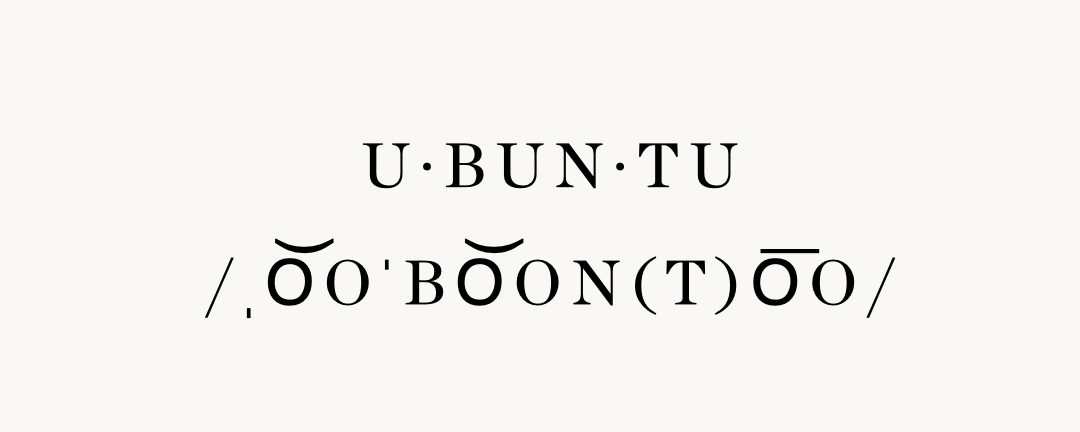Ubuntu, one of Africa’s greatest gifts to the world.
The concept of ubuntu is found in almost all African Bantu languages. It shares its roots with the word “bantu” – meaning “people” – and denotes the importance of community and connection. The bedrock of the ubuntu philosophy is respect: for yourself and for others. It demands that we treat each other with generosity, realizing the infinite worth we all possess.
Ubuntu is a way of life from which we can all learn. Originating from a Southern African philosophy, it encompasses our aspirations to live life together. We feel it when we connect with other people and share our humanity — when we listen deeply, experiencing an emotional bond.
The Ubuntu Mask
We were inspired by this ubuntu philosophy to create our Ubuntu Mask collection, one that encompasses the idea of human unity and the common good.
The global fight against the COVID-19 pandemic has, at many points, been a manifestation of ubuntu. The concept of ubuntu calls us to examine our actions and thoughts, taking into consideration how they impact others with whom we are in contact. In the chaotic times the globe as a whole is going through, facemasks have become a device for the common good, protecting ourselves and others simultaneously and working together to achieve a shared goal.
Now, the values of ubuntu are more important than ever because they teach us that if we come together, we can overcome our differences. This concept is realized as we collectively wear masks to rebuild communities during the pandemic. Whoever we are, wherever we live, whatever our culture — the concept of ubuntu can help us through these confusing times, inspiring us to coexist in harmony and peace. It instills togetherness through an item as simple as a mask, one that is instrumental in overcoming COVID-19.


Ubuntu’s meaning and linguistic history
Ubuntu is an ancient word, one that denotes the need for togetherness. Directly meaning “humanity to others,” it is the concept that we exist because of one another and must coexist generously. Ubuntu is rooted in Southern African ideas of how to live and interact with the world and people around us.
Because ubuntu is a widespread idea across the African continent, it has many different linguistic roots in different dialects and languages. From Malawi’s uMunthu to Kenya’s utu, human generosity abounds as a lifestyle. Everything we know we have learned from those around us, and so everybody we interact with has a worth that we can only attempt to comprehend. If you are with ubuntu, you follow this philosophy and let it guide your life choices.
At its core, ubuntu is about appreciation—for ourselves, the world, and those around us who shape how we live. Everybody contributes in some way, shape, or form, so, to have ubuntu, we must respect that. The universal Golden Rule comes into play at this junction, with its direction to “Do unto others as you would have them do unto you.” Ubuntu embodies this rule at a more holistic end of the spectrum. It demands that we not only keep track of how we treat others, but also that we interact with the world around us in such a way that we are respecting all life around us in our act of being.
Ubuntu means looking at the bigger picture. To live with ubuntu, we must realize that everybody is at equal standing on the world’s stage because everybody has their own output. In other words, every human interacts with the world differently and makes their own contributions to those around them. How we act is certainly an indicator of our character, but how we exist in the world is just as indicative. By avoiding comparison, we allow for “humanity to others” at the utmost extent.











